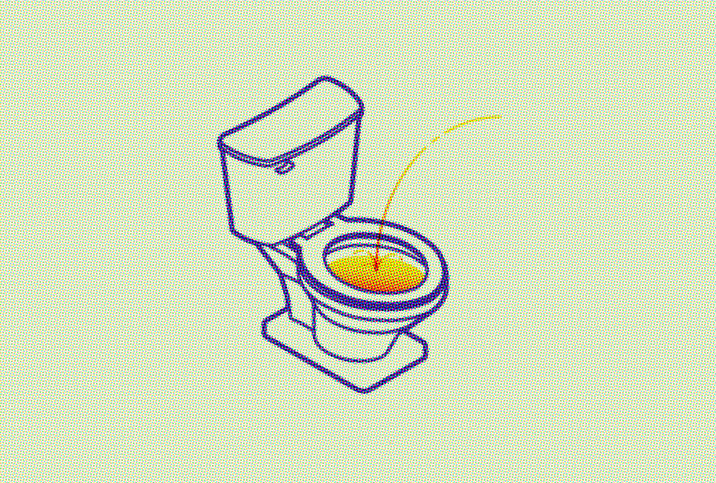Is Penile Mondor's Disease Dangerous to Men's Health?

Getting diagnosed with a well-known disease is scary. Potentially even more frightening is being told you have something you've never heard of before. Enter penile Mondor's disease.
Attaching the word "penile" to the word "disease" is terrifying for anyone attached to a penis. What is this disease? Who does it afflict? Does your penis really have a part called a Mondor? No, to that last one. But it's important for men to know the causes and treatment of penile Mondor's disease.
What is penile Mondor's disease?
First diagnosed in 1939 by French surgeon Henri Mondor, the disease that bears his name involves the swelling and sometimes hardening of veins. This can occur in the veins of the breast, chest or arm as well as the penis.
Right off the bat, you should know that among afflictions of the penis, penile Mondor's disease isn't particularly dangerous. Nor is it life-threatening, despite the ominous-sounding name.
For guys who get it—one study puts the number at 1.4 percent of men, though the prevalence may be underreported—that information doesn't make it any less distressing, or less painful.
"Mondor's disease is an inflammation in the superficial veins of the penis [that] most commonly impacts men between [ages] 20 and 50," said Richard Heppe, M.D., of the Urology Center of Colorado, based in Denver.
The medical, even scarier-sounding name for penile Mondor's disease is thrombophlebitis of the dorsal vein of the penis. It usually presents in the primary visible vein of the penis and sometimes the smaller veins, as well. The symptoms include:
- Continual or episodic pain or throbbing in the penis
- Painful erections
- Edema, or tissue swelling, in the affected area
- Erythema, or redness of the skin
- Difficulty urinating
"Really, the telltale sign is the pain is localized on the dorsum, or top, of the penis, where the main vein is located," said Neel Parekh, M.D., a urologist with the Cleveland Clinic. "So a lot of guys will have a prominent dorsal vein on the shaft of their penis, and they'll have pain along the shaft and they'll report that the vein has become hardened."
What causes penile Mondor's disease?
A genetic component is believed to be a factor in certain forms of Mondor's—in particular, a condition called hereditary antithrombin deficiency, which is linked to deep vein thrombosis (DVT). But with penile Mondor's disease, most clinicians point to other outside factors, including:
- Frequent or rough sex
- Injury or trauma to the penis
- Prolonged abstinence from sex
- A history of sexually transmitted infections (STIs)
- Abuse of injectable drugs
- Overuse of a penile vacuum (a size- and/or erection-enhancing device that uses suction)
Sometimes Mondor's disease doesn't have a direct cause, which may be even more troubling. With other conditions caused by penile trauma, such as Peyronie's disease—a formation of plaque deposits in the penis that causes curvature—a specific injury is usually the trigger. That's not necessarily the case with Mondor's.
"There's not always a reason [for Mondor's], or they can't pinpoint an exact event or something, but sometimes we associate it with an injury to the penis with sexual activity," Parekh said, quickly noting that Peyronie's and Mondor's are two completely separate, unrelated conditions.
He did point out, however, that when a patient presents with the acute, early phase of Peyronie's—just after the traumatic event or injury and before the curvature and plaque buildup set in—it's conceivable for Mondor's to occur due to that same trauma. This doesn't mean they are associated, and one doesn't lead to the other.
"You just have to be able to differentiate between the two," Parekh explained.
What's the treatment for penile Mondor's disease?
The good news is if you get penile Mondor's disease, it's not going to last forever.
The bad news: It might seem like forever.
There's no simple cure. In fact, there's no cure for Mondor's at all. Doctors can diagnose it, so at least you know what's happening, but there's little to be done apart from relieving symptoms.
"Treatment is conservative: anti-inflammatory medications such as ibuprofen, warm compresses and time," Heppe said, adding that long-term problems are exceedingly rare.
Parekh said he has tried an experimental blood thinner with some patients: baby aspirin.
"If you look up in the literature, some people recommend blood thinners. I'm not comfortable prescribing anything stronger than baby aspirin, but some doctors do prescribe anticoagulants for this problem," he said. "I have not done that personally, but typically with ibuprofen, the symptoms resolve after around three months."
That's right—three months. And not necessarily an easy-peasy three months, either. The discomfort associated with Mondor's can be severe.
"I've had guys who don't want to have sex, who are scared to have sex after this happens," Parekh said. "So it can be pretty uncomfortable."
Of course, it's frightening when anything afflicts your down-there companion. But at the end of the day, penile Mondor's disease isn't permanent and won't cause any long-term damage—just short-term pain in the penis and perhaps some mental anguish.


















